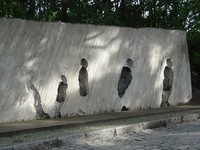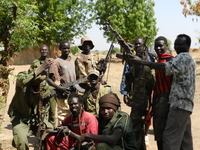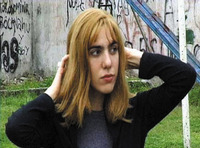Thursday, April 3
3:00p.m.
Walter Library Conference Room 101
-thumb-200x309-183504.jpg)
Dr. Schlund-Vials is an Associate Professor of English and Asian American Studies at the University of Connecticut at Storrs. She is the Director of the UConn Asian American Studies Institute and the Faculty Director for Humanities House. She was awarded the 2011 AAUP "Teaching Promise" award (at the University of Connecticut). In 2013, she was the recipient of the Association for Asian American Studies's "Early Career Award."
Her research interests include refugee cultural production, critical race theory, immigration law, human rights, and contemporary ethnic American literary studies.
She has recently completed her second book, War, Genocide, and Justice: Cambodian American Memory Work (University of Minnesota Press, Fall 2012), which is focused on genocide remembrance and juridical activism in Cambodian American literature, film, and hip hop.
Dr. Schlund-Vials is currently working on a third project, tentatively titled "Imperial Coordinates: War, Containment, and Asian American Critique," which engages a spatial reading of U.S. imperialism through Asian American writing about militarized zones, internment camps, and relocation centers.
Sponsored by: Asian American Studies, Center for Holocaust and Genocide Studies, University of Minnesota Press.



